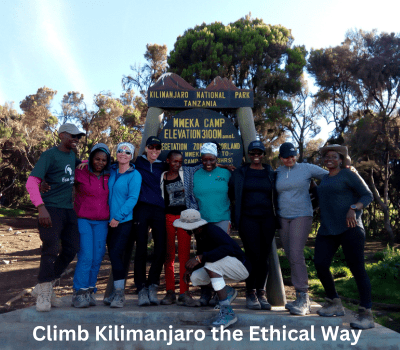Are There Age Restrictions for Climbing Kilimanjaro and Reaching Uhuru Peak
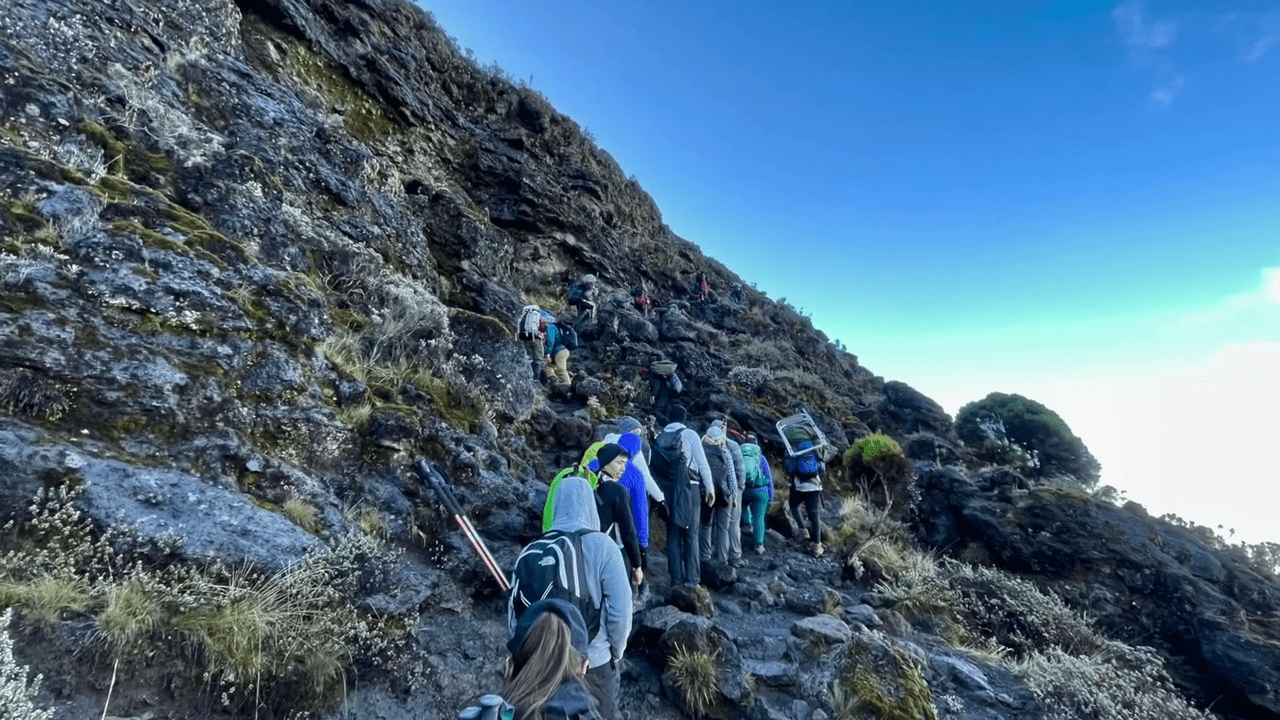
Introduction: A Mountain for All Ages?
Climbing Mount Kilimanjaro, Africa’s tallest peak, is a dream for many people across all age groups—from adventurous teens to spirited retirees. But the big question remains: are there age limits for this incredible trek? Can young climbers reach Uhuru Peak, or is it only suitable for adults and seasoned hikers?
Age can influence everything from physical readiness to legal permissions and safety protocols. Whether you’re planning a family expedition or considering the climb later in life, understanding Tanzania’s age guidelines and what it really takes to summit this iconic mountain is essential.
In this article, we break down the legal requirements, safety standards, and expert tips from Eco-Africa Climbing to help you determine whether Kilimanjaro is the right adventure for your age—or your child’s.
The Legal Minimum Age for Climbing Kilimanjaro
The Tanzania National Parks Authority (TANAPA) has established a minimum age requirement for anyone attempting to climb Mount Kilimanjaro. Currently, that age is set at 10 years old. This rule applies to all routes and is strictly enforced at entry gates such as Marangu, Machame, Lemosho, and Rongai.
While some trekking agencies may claim exceptions, official TANAPA guidelines require proof of age and do not permit any climber under the age of 10 to proceed. This rule exists for good reason—Kilimanjaro is a high-altitude mountain with risks such as Acute Mountain Sickness (AMS), hypothermia, and rapid weather changes that young children may not be physically or mentally prepared to handle.
However, just because a 10-year-old can legally attempt the climb doesn’t mean it’s suitable for all children at that age. Parents and guardians are strongly encouraged to assess their child’s fitness level, emotional resilience, and ability to cope with cold, fatigue, and high-altitude conditions.
Is There a Maximum Age Limit?
Unlike the strict minimum age rule, there is no official maximum age limit for climbing Kilimanjaro. Many climbers in their 60s and 70s have successfully reached Uhuru Peak, and some even do it in their 80s with the right preparation and support.
That said, older climbers should take extra precautions. The effects of altitude can be more pronounced, and pre-existing health conditions must be considered carefully. A thorough medical checkup before climbing is not only recommended—it’s essential.
At Eco-Africa Climbing, we’ve guided many climbers in their 50s, 60s, and beyond to the summit with personalized support, acclimatization-focused itineraries, and a caring mountain crew. Age alone doesn’t determine success—preparation, mindset, and a good guide team do.
Physical Requirements vs. Age: What Really Matters
Climbing Kilimanjaro is a non-technical trek, meaning no ropes or climbing gear are required. However, that doesn’t make it easy. The altitude, the duration (typically 6–9 days), and the continuous elevation gain test even fit climbers. That’s why physical fitness is a more accurate indicator of readiness than age.
Younger climbers who are active in hiking, sports, or outdoor adventures often perform better than sedentary adults. On the flip side, older individuals who train adequately and have high cardiovascular fitness may outperform younger, unfit counterparts.
We recommend starting a fitness and training program at least 12 weeks before your climb. Include cardio, strength, hiking practice, and altitude acclimatization when possible. And no matter your age, always be honest with your guide about how you’re feeling during the trek—they’re there to help.
How Young Climbers Can Safely Prepare for Kilimanjaro
If you’re considering a Kilimanjaro trek with a child or teenager, planning is everything. Not only does the child need to meet the minimum age, but they should also be mentally prepared for the challenges ahead. Here’s how to set them up for success:
- Practice hikes: Build endurance and familiarity with mountain terrain by hiking regularly before the trip.
- Talk about the risks: Ensure your child understands what symptoms like nausea, fatigue, or dizziness might mean at high altitude.
- Choose the right route: Routes like the 8 Days Lemosho or 9 Days Northern Circuit are excellent for acclimatization.
- Gear up properly: Kids will need quality cold-weather gear. Use our gear checklist to make sure nothing is missed.
At Eco-Africa Climbing, we specialize in crafting family-friendly itineraries that balance safety, education, and adventure.
Special Permission for Children Under 10
While the official minimum age to climb Mount Kilimanjaro is 10 years old, there have been exceptional cases where younger children have been granted special permission to attempt the ascent. These exceptions are rare and require a thorough evaluation process by the Kilimanjaro National Park authorities. Parents or guardians must demonstrate that the child has prior high-altitude trekking experience and is physically and mentally prepared for the challenges of the climb. Additionally, the accompanying adult should have substantial experience with high-altitude hiking and acclimatization techniques. It’s important to note that obtaining such permission is not guaranteed and must be arranged well in advance of the planned expedition.
Record-Holding Climbers
Mount Kilimanjaro has seen climbers of various ages achieve remarkable feats. Notably, Anne Lorimor, at the age of 89, became the oldest person to summit Uhuru Peak, demonstrating that age is not necessarily a barrier to reaching the top. On the other end of the spectrum, Coltan Tanner, a 6-year-old from New Mexico, successfully reached the summit in 2018, setting a record as one of the youngest climbers. These extraordinary accomplishments underscore the importance of physical fitness, mental resilience, and proper preparation, regardless of age.
Training and Preparation for Young Climbers
For children and teenagers aspiring to climb Kilimanjaro, comprehensive preparation is crucial. This includes engaging in regular physical training to build endurance and strength, as well as participating in multi-day hikes to simulate the conditions of the mountain. Acclimatization to high altitudes is particularly important, as young climbers may be more susceptible to altitude-related illnesses. Parents should ensure that their children are well-informed about the challenges ahead and are mentally prepared for the rigors of the climb. Consulting with medical professionals and experienced tour operators can provide valuable guidance tailored to the needs of young adventurers.
Considerations for Older Climbers
While there is no maximum age limit for climbing Kilimanjaro, older individuals should take certain precautions to ensure a safe and successful ascent. A comprehensive medical examination is recommended to assess cardiovascular health and overall fitness. Engaging in a structured training program focusing on cardiovascular endurance, strength, and flexibility can enhance physical readiness. Additionally, selecting a longer route with gradual elevation gain can aid in acclimatization, reducing the risk of altitude sickness. Older climbers should also consider traveling with reputable tour operators who provide experienced guides and support staff to assist throughout the journey.
Record-Holding Climbers: Youngest and Oldest to Summit Kilimanjaro
Mount Kilimanjaro has witnessed remarkable feats by climbers of various ages, showcasing that age, while a factor, doesn’t solely determine one’s ability to reach Uhuru Peak. Notably, Anne Lorimor, at the age of 89, became the oldest person to summit Kilimanjaro on July 18, 2019. Her achievement underscores that with proper preparation and determination, older climbers can successfully undertake this challenge.
On the other end of the spectrum, Coaltan Tanner, a 6-year-old from New Mexico, reached the summit in 2018, setting a record as one of the youngest climbers. It’s important to note that such young climbers require special permissions and must meet stringent criteria set by the Kilimanjaro National Park authorities, including prior high-altitude trekking experience and comprehensive medical evaluations.
These extraordinary accomplishments highlight that with the right preparation, guidance, and support, climbers across a broad age range can experience the thrill of summiting Africa’s highest peak.
Training and Preparation for Young Climbers
For children and teenagers aspiring to climb Kilimanjaro, comprehensive preparation is crucial. This includes engaging in regular physical training to build endurance and strength, as well as participating in multi-day hikes to simulate the conditions of the mountain. Acclimatization to high altitudes is particularly important, as young climbers may be more susceptible to altitude-related illnesses. Parents should ensure that their children are well-informed about the challenges ahead and are mentally prepared for the rigors of the climb. Consulting with medical professionals and experienced tour operators can provide valuable guidance tailored to the needs of young adventurers.
Considerations for Older Climbers
While there is no maximum age limit for climbing Kilimanjaro, older individuals should take certain precautions to ensure a safe and successful ascent. A comprehensive medical examination is recommended to assess cardiovascular health and overall fitness. Engaging in a structured training program focusing on cardiovascular endurance, strength, and flexibility can enhance physical readiness. Additionally, selecting a longer route with gradual elevation gain can aid in acclimatization, reducing the risk of altitude sickness. Older climbers should also consider traveling with reputable tour operators who provide experienced guides and support staff to assist throughout the journey.
Conclusion: Age Is Just a Number—Preparation Is Everything
Climbing Mount Kilimanjaro and reaching Uhuru Peak is a life-changing adventure that transcends age. While the minimum legal age is 10 and there’s no official upper limit, what truly matters is preparation, both physical and mental. Whether you’re a fit teen or a determined retiree, with the right training, mindset, and professional guidance, you can conquer Africa’s tallest peak safely and confidently.
With Eco-Africa Climbing, you don’t just climb a mountain—you gain a team that supports you from day one, ensures your safety on the trail, and celebrates every step toward your summit goal. Let your age be a motivation, not a limitation.
Frequently Asked Questions (FAQs)
What is the minimum legal age for climbing Kilimanjaro?
The official minimum age is 10 years old, as set by the Tanzania National Parks Authority (TANAPA). Special permission may be granted in rare cases.
Can children younger than 10 climb Kilimanjaro with parental approval?
Only in exceptional circumstances, and with special approval from park authorities. Documentation, experience, and medical clearance are required.
Is there an age limit for older climbers?
No. There’s no upper age limit, but older climbers should undergo medical checks and prepare thoroughly for altitude challenges.
How can I help my child prepare for a Kilimanjaro climb?
Train with hikes, educate them about altitude, ensure proper gear, and choose a longer route like the Northern Circuit for better acclimatization.
What route is best for climbers of all ages?
The Lemosho Route and Northern Circuit are ideal for gradual acclimatization and scenic beauty, making them perfect for families and older climbers.
Climb Kilimanjaro With the Team That Cares—Eco-Africa Climbing
Whether you’re young, older, or climbing as a family, Eco-Africa Climbing is ready to guide you safely to the summit. We specialize in tailored adventures for all age groups, ensuring that every trek is meaningful, ethical, and memorable.
Explore our most popular age-friendly routes:
Request a quote now or get in touch to begin your Kilimanjaro journey with confidence.
Share:
Related Posts
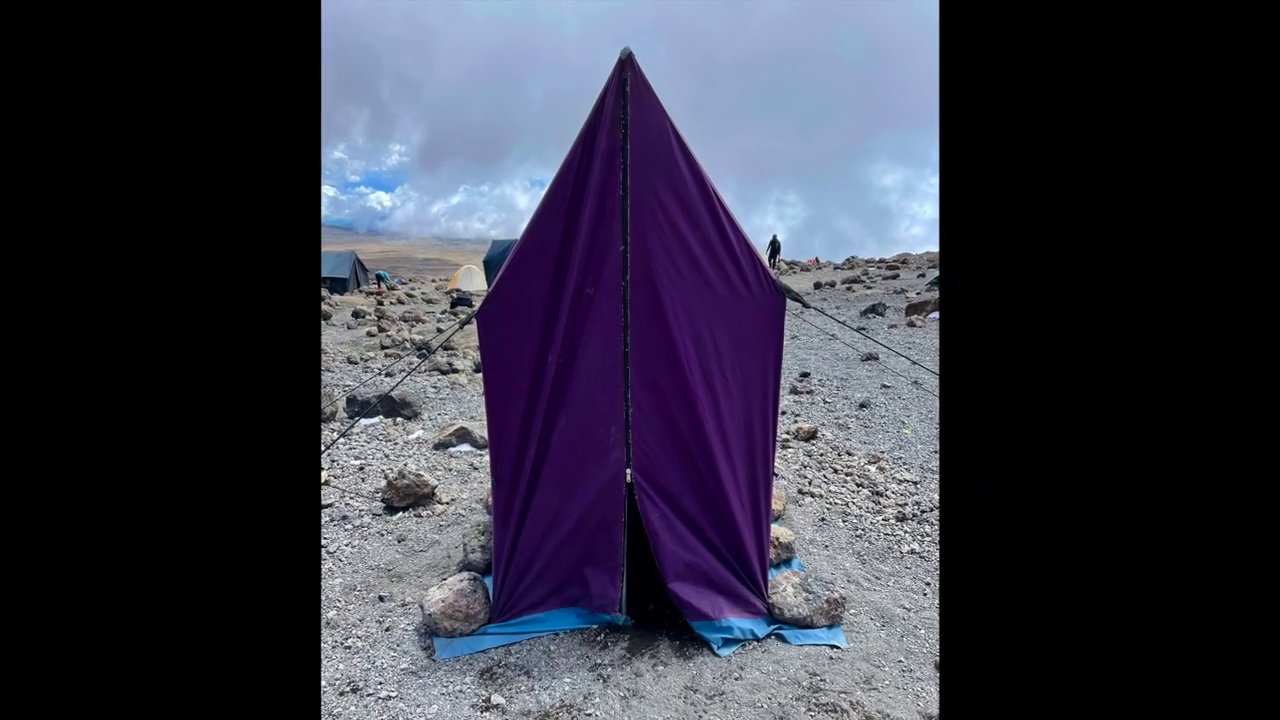
bathroom on mountain kilimanjaro
Bathroom on Mountain Kilimanjaro: What to Expect and How to Prepare Introduction One of the most common — and least discussed — questions from people
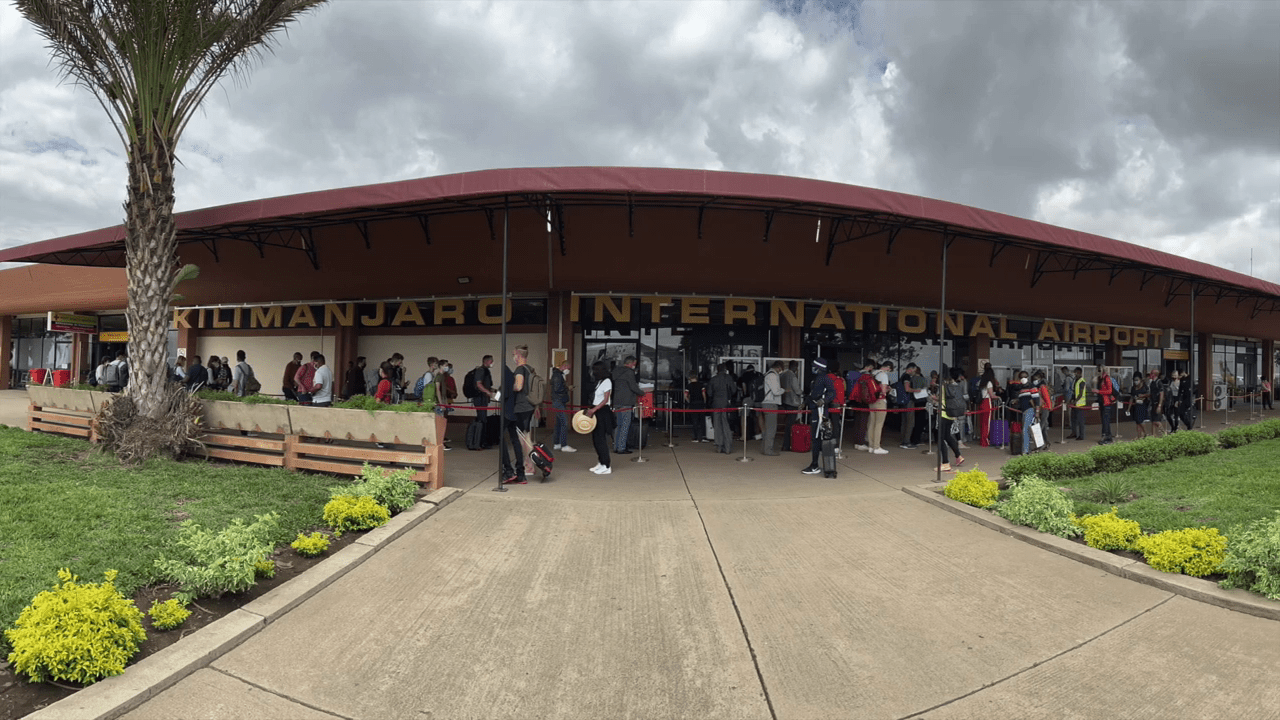
Are Guides Readily Available in Tanzania Without Prior Booking?
Are Guides Readily Available in Tanzania Without Prior Booking? Introduction: Should You Risk Climbing Without Pre-Booking? Climbing Mount Kilimanjaro is a dream for many adventurers.
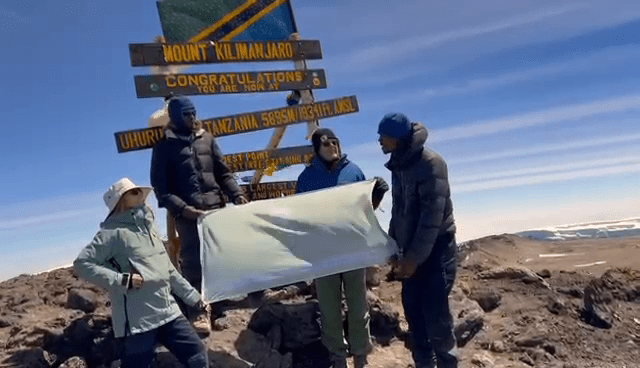
How Can I Find a Reliable Local Guide for My Kilimanjaro Expedition?
How Can I Find a Reliable Local Guide for My Kilimanjaro Expedition? Introduction: Why the Right Guide Is Key to Kilimanjaro Success Climbing Mount Kilimanjaro
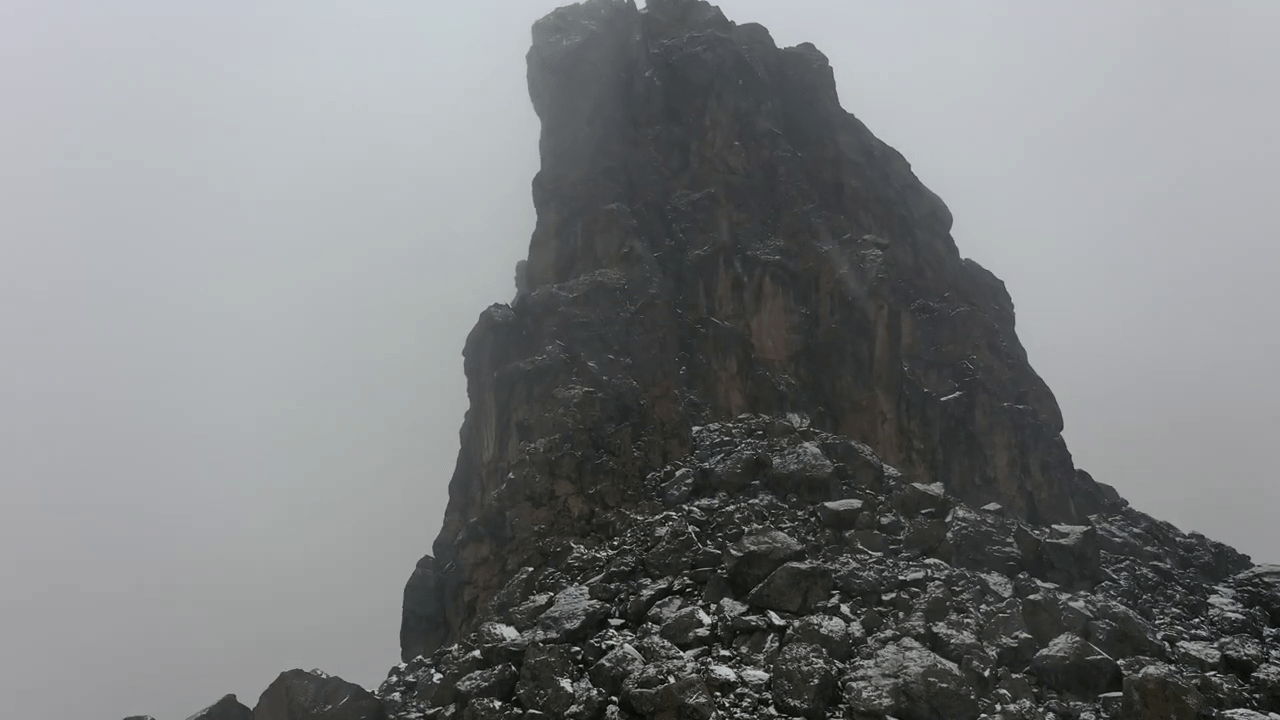
Is Climbing Kilimanjaro Dangerous for Individuals Without Mountaineering Experience?
Is Climbing Kilimanjaro Dangerous for Individuals Without Mountaineering Experience? Introduction: The Myth of Danger and Experience Many aspiring adventurers wonder if climbing Mount Kilimanjaro is
